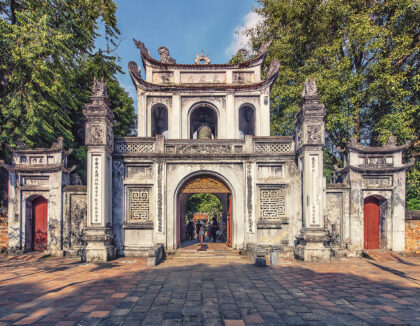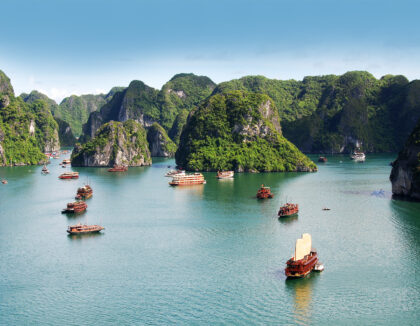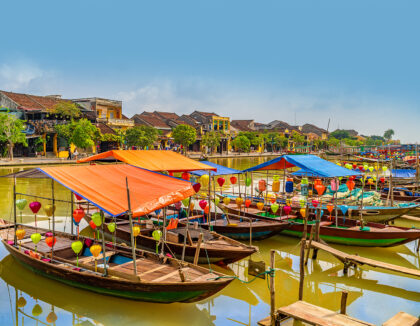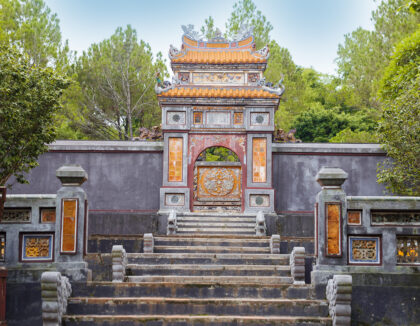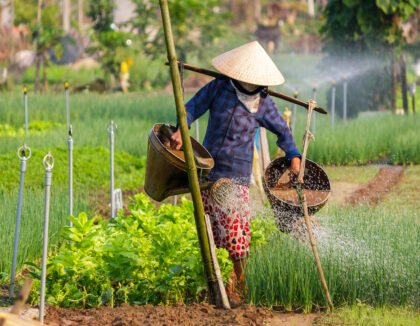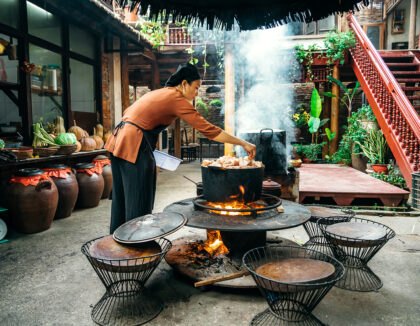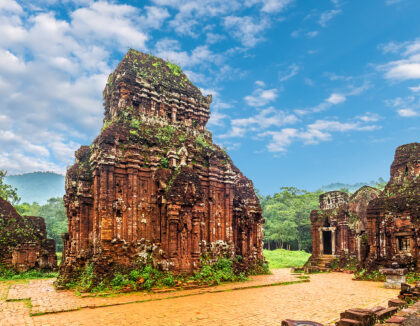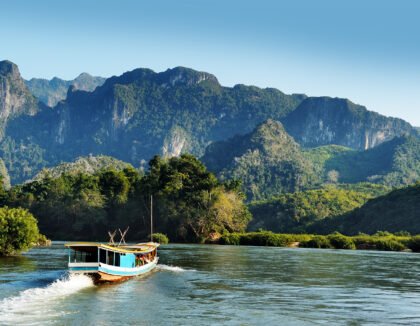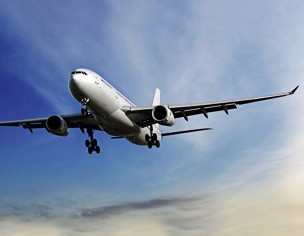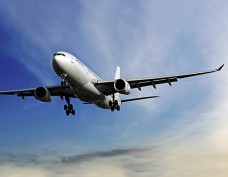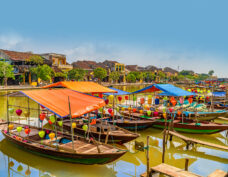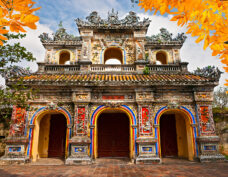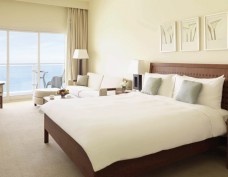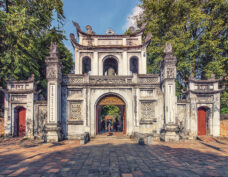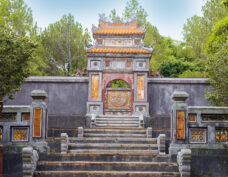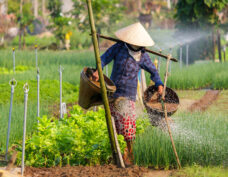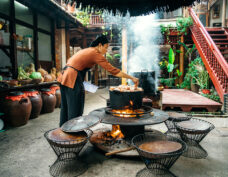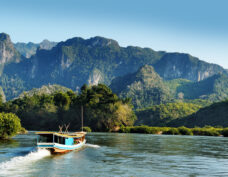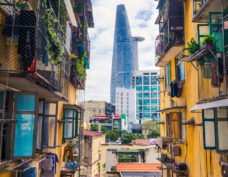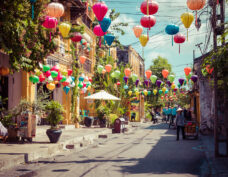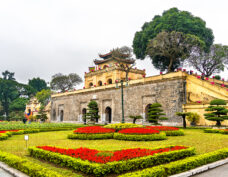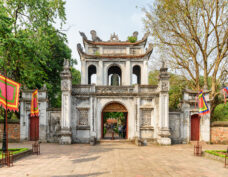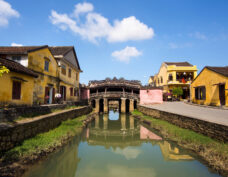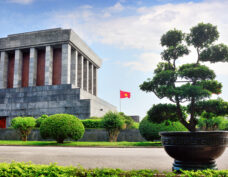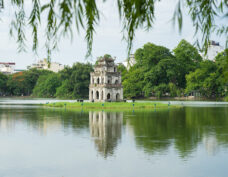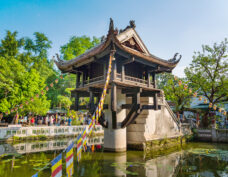Comparison of temperatures
| Jan | Feb | Mar | Apr | May | Jun | Jul | Aug | Sep | Oct | Nov | Dec |
| Hanoi | 32 | 33 | 34 | 35 | 33 | 32 | 31 | 31 | 31 | 31 | 31 | 31 |
| London | 6 | 8 | 9 | 11 | 15 | 20 | 21 | 20 | 19 | 15 | 10 | 7 |
General note:
Below is an information overview. The conditions of entry, as well as the political and health situation, can change anywhere in the world at any time. We therefore recommend checking the website of the Foreign Office (www.gov.uk) before your departure.
Geography:
Vietnam is an elongated coastal state in the east of the mainland of South-East Asia.
Form of government:
One-party system
Capital:
Hanoi
Religion:
74 % are atheist or belong to different popular religions. Buddhists, Catholics and Protestants, among others, are also represented.
Language:
The national language is Vietnamese.
Climate:
The climate is influenced by the monsoon. Northern Vietnam is subtropical with warm summers and mild winters. South Vietnam is tropical with a distinct rainy season in summer. Central Vietnam is dominated by a subtropical transitional climate with lots of rain in autumn.
Electricity:
The mains voltage is 110 / 220 V AC, 50 Hz. An adapter will be required. In some regions, the local mains voltage may be 110 V, for which a voltage converter is required.
Local time:
The time difference to UK is plus 6 hours in the summer months and plus 7 hours in the winter months.
Making telephone calls:
The country code for Vietnam is 0084 (+84) and before the area code there is no zero. If you are calling the UK, dial 0044 (+44) and then the area code, again without the first zero.
Country and people:
Throughout the South-East Asian region, mutual respect is a valuable and important virtue. Friendliness and openness are therefore also expected from travellers. Skirts, shorts and revealing tops are forbidden in religious places. It is recommended to cover the shoulders and generally dress conservatively and casually. Shoes should be removed when entering the homes of local people.
Entry requirements for British citizens:
To enter Vietnam, your passport must have:
– an ‘expiry date’ at least 6 months after the date you arrive
– at least 2 blank pages
– no damage – British nationals have been denied entry and exit due to passport damage.
Make sure your passport is in good condition before arriving in Vietnam. Being refused entry can result in significant cost and a long stay at the airport. British Nationals can enter Vietnam for up to 45 days for tourism without needing to apply for a visa. Legal information and/or information outside the scope of these notes regarding entry requirements can only be obtained directly from the embassy or one of your destination country‘s general consulates. Citizens of other countries are advised to enquire about the applicable entry requirements from their respective embassy. You are solely responsible for applying for, and presenting, any visa that may be required.
Whilst we endeavour to provide guidance where necessary, we can not be responsible for any problems encountered (whether at any point of entry or elsewhere) in the event that passport and visa requirements are not satisfied.
Tour guides:
Your expert tour guides will be able to provide you with detailed information about the country, people, history, culture, etc., and offer advice and assistance for organising your trip. They can also help with room allocation and look forward to welcoming you with initial information. Here you will find out all you need to know and useful information about the trip. We have put together a varied programme including numerous highlights, enabling you to experience the culture and diversity of landscape that Vietnam has to offer, and learn all about the country and its people.
Additional packages:
Although your trip already includes a comprehensive package, you also have the option of choosing added extras. We recommend booking the following packages:
Half board: The package includes 9x dinner as 3-course menu in local restaurants: only £199* per person.
Explorer package: The package includes the traditional water puppet theatre in Hanoi, the 2 full-day excursions to Halong Bay including boat trip & to the imperial city of Hue and the Street Food Tour in Hoi An: only £229* per person.
* Package prices may vary when booking on site.
Currency/Banks/Credit cards:
The unit of currency is the Vietnamese dong (VND). 1 VND = 10 Hao and 100 Xu. Exchange rate (november 2024): 1 GBP = 32,106 VND, 1 VND = 0,00003 GBP.
Cash may only be exchanged at official exchange offices with clear signs identifying them as such. Credit cards are accepted in many places and ATMs can also be found, but outside larger cities cash is still often the only accepted means of payment.
Customs regulations:
Private individuals can import cash in foreign currencies worth USD 5,000 and cash of the Vietnamese currency dong worth VND 15 million duty-free. Furthermore, 200 cigarettes, 100 cigarillos, 50 cigars, 250 gr tobacco or 200 electronic cigarettes. Personal effects can be imported duty-free. Such items shall be deemed to be required in a reasonable number and quantity, taking into account the purpose and duration of the trip. Items in excess of this are subject to duty if they exceed a value of VND 10 million. If you are taking prescription medication into Vietnam, carry it in your hand luggage with a copy of the prescription. If it has a total import value greater than USD 100, you must declare it at customs.
Important: If you are travelling to Great Britain from outside the UK, your personal allowances mean you can bring in a certain amount of goods without paying tax or duty. If you go over your allowances you must declare all your goods and pay tax and duty on all the goods in that category. Please inform yourself about the current customs regulations: https://www.gov.uk/bringing-goods-into-uk-personal-use/arriving-in-Great-Britain.
Safety information specific to Vietnam:
Public demonstrations are prohibited and have been previously dispersed by security forces. Participation in these can lead to lengthy pre-trial detention and sentencing to a long term of imprisonment, under harsh conditions of imprisonment. Avoid demonstrations and large gatherings of people. Follow the instructions of local security forces. Be aware that statements made in the UK on social media will be noticed in Vietnam and may lead to consequences when travelling there.
Crime: Pickpockets and bag-snatchers operate in crowded areas and in places visited by tourists. Take care of your belongings and consider splitting important items between bags. Do not give your passport to others as a guarantee – for example, to motorcycle rental shops or landlords. They can hold your passport against claimed damage. A photocopy of an ID card can be helpful if the ID card is lost.
Special criminal provisions:
Penalties for possessing, distributing or manufacturing drugs are severe. You can get the death sentence if you are found with even small amounts.
Illegal drugs are often tampered with or spiked and can be much stronger than in Europe. British nationals in Vietnam have suffered severe psychiatric problems because of drug use.
Medical information:
At least 8 weeks before your trip, check the latest countryspecific health advice from the National Travel Health Network and Centre (NaTHNaC) on the TravelHealthPro website (https://travelhealthpro.org.uk/countries).
Each countryspecific page has information on vaccine recommendations, any current health risks or outbreaks, and factsheets with information on staying healthy abroad.
Medical care:
Medical care in the country cannot be compared to that in Europe. In many cases, it is problematic in terms of technology, equipment and hygiene. There is also no emergency medical care. The hospital staff and the doctors in provincial hospitals often only speak Vietnamese. There are several hospitals in Hanoi and Ho Chi Minh City that have better standards. Some international clinics are often the first port of call for tourists who fall ill. Here, communication can take place in English. It is strongly recommended that you take out health insurance cover for the duration of your stay abroad. This should cover the risks that are not covered by statutory health insurance (such as repatriation to the UK in the event of illness, treatment by a private doctor or in a private hospital).
The customer must establish for himself that his physical and mental state is compatible with the selected journey. He is obliged to obtain information about the degrees of physical mobility and mental autonomy required for this journey.
All information is subject to change/Last updated: November 2024
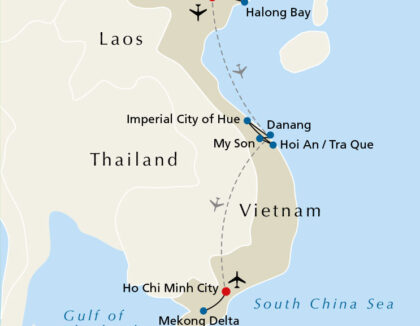
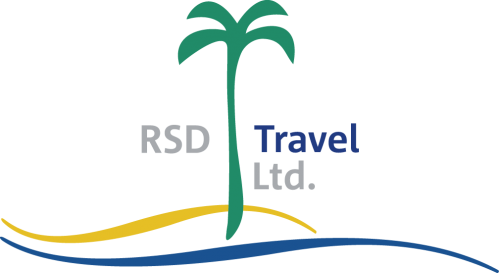






 Travel highlights
Travel highlights
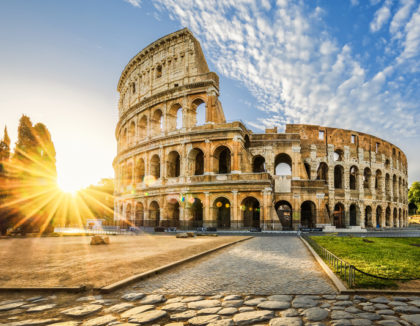 Europe
Europe
 Asia
Asia
 America
America
 Africa
Africa
